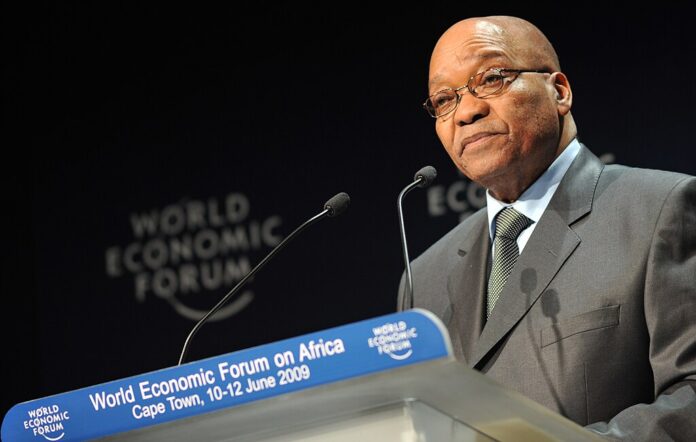Fikile Mbalula sends controversial text messages to Tony Yengeni, alleging sabotage of the ANC
In a dramatic escalation of tensions within the African National Congress (ANC), Secretary-General Fikile Mbalula has accused party veteran Tony Yengeni of attempting to undermine the ANC through cryptic messages sent in the lead-up to former President Jacob Zuma’s disciplinary hearing. The allegations, which have stirred controversy within the party, are reportedly centred around messages that Mbalula deemed “intimidating.”
Mbalula’s accusations emerged as the ANC’s National Disciplinary Committee reviewed the case against Zuma. The committee, responsible for handling internal party disputes and disciplinary matters, found that the messages exchanged between Mbalula and Yengeni were unrelated to Zuma’s disciplinary hearing. Despite this finding, the accusations have fueled speculation and debate within the party.
Embed from Getty ImagesAccording to Mbalula, the text messages sent to Yengeni contained veiled threats and an underlying agenda aimed at destabilizing the ANC. The nature of these messages has not been fully disclosed, but Mbalula’s assertion suggests a deeper rift within the party, exacerbated by the high-stakes hearing involving Zuma.
Tony Yengeni, a prominent ANC figure and Zuma’s representative for the disciplinary proceedings, has not publicly addressed the specific content of the messages. However, his role in representing Zuma and his longstanding affiliation with the ANC have placed him at the centre of the controversy. Yengeni’s involvement in Zuma’s case has been contentious, with various factions within the ANC scrutinizing his actions and motivations.
The disciplinary hearing against Zuma has been a focal point of internal party conflict, with various leaders and members weighing in on the former president’s conduct and the implications for the ANC’s future. Zuma, who has faced numerous legal and political challenges, is a polarizing figure within the ANC, with his supporters and detractors clashing over his role in the party’s ongoing struggles.
Mbalula’s accusations against Yengeni reflect broader tensions within the ANC, where factionalism and power struggles have become increasingly pronounced. The party’s ability to manage internal disputes and maintain cohesion has been tested by high-profile cases such as Zuma’s, with leaders like Mbalula navigating complex political landscapes.
In response to Mbalula’s claims, the National Disciplinary Committee has emphasized that the messages in question did not pertain directly to Zuma’s hearing. This statement aims to clarify the committee’s position and reduce speculation about the influence of internal conflicts on the disciplinary process. The committee’s focus remains on addressing the specific issues related to Zuma’s conduct and ensuring that the hearing proceeds according to established procedures.
The unfolding drama within the ANC underscores the challenges faced by the party as it grapples with internal dissent and external pressures. The allegations against Yengeni, whether substantiated or not, contribute to the broader narrative of instability and division within the ANC. As the party navigates these turbulent waters, the outcome of Zuma’s disciplinary hearing and the resolution of the accusations against Yengeni will likely have significant implications for the ANC’s future trajectory.
Analysis:
Political: The allegations between Mbalula and Yengeni highlight the ongoing factionalism within the ANC, reflecting deeper political divides. Mbalula’s accusations could be interpreted as a strategic manoeuvre to consolidate power or undermine Yengeni’s influence within the party. The political ramifications are significant, as these internal disputes could affect the ANC’s ability to present a unified front in upcoming elections and policy discussions. The focus on Zuma’s disciplinary hearing, combined with Mbalula’s accusations, underscores the intricate interplay between internal party dynamics and broader political strategies.
Social: Socially, the dispute between Mbalula and Yengeni reflects the broader tensions and divisions within the ANC’s membership base. The cryptic messages and accusations contribute to a climate of mistrust and suspicion among party members and supporters. This internal discord is likely to influence public perceptions of the ANC, potentially affecting its standing and support within South Africa. The way in which the ANC manages these internal conflicts will be crucial in shaping its social narrative and maintaining its legitimacy.
Racial: The racial dimension of the conflict is less pronounced in this specific instance but remains a backdrop to the broader political landscape. The ANC, historically a party deeply intertwined with the struggle against racial injustice, faces challenges in maintaining its unity and addressing issues of racial equity within its ranks. The internal strife between Mbalula and Yengeni, while not explicitly racial, occurs within a context where racial and historical legacies continue to influence party dynamics.
Gender: Gender considerations are not a central theme in the current allegations between Mbalula and Yengeni. However, the broader context of ANC politics involves gender dynamics, as women’s representation and participation within the party have been points of discussion. The way in which male leaders like Mbalula and Yengeni navigate internal conflicts can indirectly affect gender issues within the party, particularly in terms of leadership roles and the inclusion of women in decision-making processes.
Economic: Economically, the internal disputes within the ANC, including the accusations against Yengeni, could have implications for the party’s ability to implement policies and address economic challenges. The focus on internal conflicts might distract from critical economic issues facing South Africa, such as unemployment and economic inequality. The party’s ability to maintain stability and effectively manage economic policies will be influenced by its internal cohesion and the resolution of leadership disputes.
